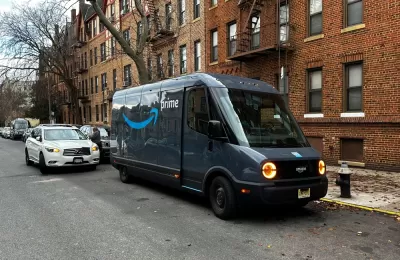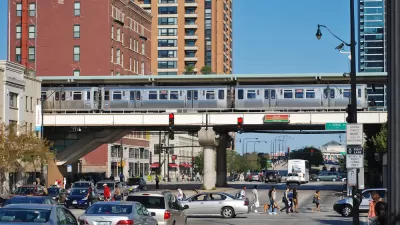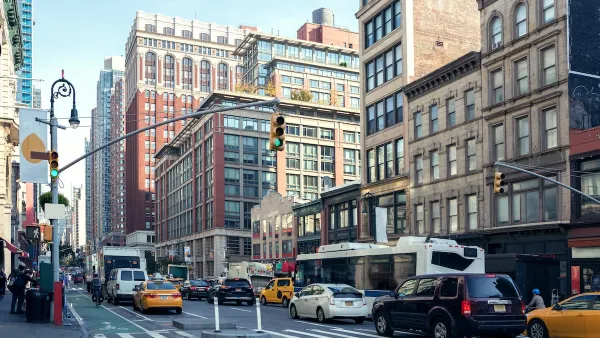The proposed fees on transportation network companies and delivery services would help cover buddget shortfalls for transportation and transit in the state.

Two bills proposed in the Minnesota state legislature would institute new fees on ridehailing apps and delivery services to help fund transportation and transit in the state and supplement declining revenue from the state’s gas tax, reports Peter Callaghan for MinnPost. “Hennepin County Commissioner Marion Greene, who is chair of the Hennepin County Regional Rail Authority, said the money is needed to both build and operate transit.”
The proposed delivery fee is 75 cents per package on items eligible for sales tax (which excludes groceries and prescription medications). “The so-called Amazon fee is expected to raise about $210 million a year. The form of the ride service fee is still in flux between a flat fee and a percentage fee and estimates are still being analyzed.”
Some critics of the flat delivery fee call it regressive, pointing out that the added cost could disproportionately harm small businesses such as local restaurants and grocery stores that offer delivery services. Although the state projects budget surpluses, the Department of Transportation says it predicts a “fiscal cliff” for transportation because car and gas taxes dropped more dramatically during the pandemic, and federal emergency relief funds are drying up.
FULL STORY: Legislative proposal would add fees to Uber rides, Amazon deliveries to fund Minnesota transportation

Maui's Vacation Rental Debate Turns Ugly
Verbal attacks, misinformation campaigns and fistfights plague a high-stakes debate to convert thousands of vacation rentals into long-term housing.

Planetizen Federal Action Tracker
A weekly monitor of how Trump’s orders and actions are impacting planners and planning in America.

In Urban Planning, AI Prompting Could be the New Design Thinking
Creativity has long been key to great urban design. What if we see AI as our new creative partner?

King County Supportive Housing Program Offers Hope for Unhoused Residents
The county is taking a ‘Housing First’ approach that prioritizes getting people into housing, then offering wraparound supportive services.

Researchers Use AI to Get Clearer Picture of US Housing
Analysts are using artificial intelligence to supercharge their research by allowing them to comb through data faster. Though these AI tools can be error prone, they save time and housing researchers are optimistic about the future.

Making Shared Micromobility More Inclusive
Cities and shared mobility system operators can do more to include people with disabilities in planning and operations, per a new report.
Urban Design for Planners 1: Software Tools
This six-course series explores essential urban design concepts using open source software and equips planners with the tools they need to participate fully in the urban design process.
Planning for Universal Design
Learn the tools for implementing Universal Design in planning regulations.
planning NEXT
Appalachian Highlands Housing Partners
Mpact (founded as Rail~Volution)
City of Camden Redevelopment Agency
City of Astoria
City of Portland
City of Laramie





























